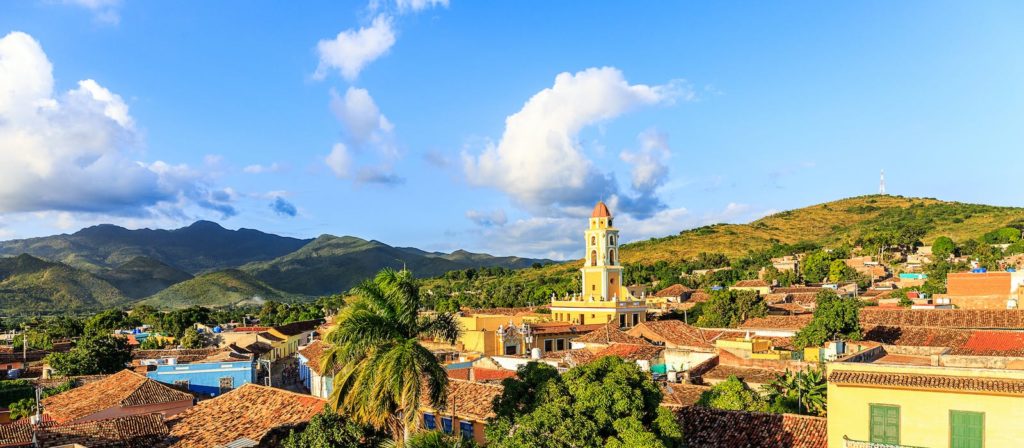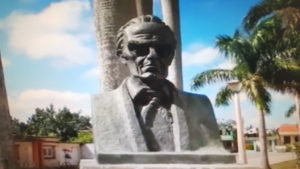JOSÉ DE LA LUZ Y CABALLERO, DESTACADO PEDAGOGO Y FILÓSOFO CUBANO PIONERO DE NUESTRA NACIONALIDAD.
José Cipriano Pío Joaquín de la Luz y Caballero nació en la Habana un 11 de Julio de 1800. Fue un Pedagogo y filósofo, maestro por excelencia y formador de conciencias que engrandeció el sentido de la nacionalidad cubana.
Procedía de un hogar de propietarios criollos, creció en un ambiente dominado por relativas estrecheces económicas y una educación estricta, pero cuyas necesidades no fueron tan perentorias y la familia pudo vivir una vida hasta cierto punto holgada.
El joven Pepe fue tutoreado en los estudios por su tío José Agustín el cual, junto al ambiente religioso del hogar, propició que su sobrino adquiriese dotes intelectuales de altura. Así, José de la Luz, ya a los doce años estudiaba latín y filosofía en el convento de San Francisco. En 1817 se titula de bachiller en filosofía en la Real y Pontificia Universidad de San Gerónimo de La Habana. Tiempo después, las inclinaciones personales y los deseos de la madre y el tío hicieron que iniciara una carrera común a muchos de los vástagos de los hogares criollos adinerados de la época, el sacerdocio. Ingresa entonces en el Colegio Seminario de San Carlos y San Ambrosio.
Se formó, como muchos otros de su época, en el Seminario de San Carlos y abandonó el sacerdocio por sus concepciones filosóficas y sirvió siempre a su Patria. Pronto se convirtió en un exponente de las ideas reformistas. Desde la Sociedad Económica de Amigos del País, abogó por la instrucción pública y el incremento de las escuelas; consideró que los planteles educacionales estaban incapacitados para formar a los hombres de esa época al estar ladrados de clericalismo e ideas escolásticas.
Siempre fue considerado un filósofo audaz, aunque cauteloso ante los problemas políticos y sociales de su tiempo; sus grandes energías las dedicó a educar y entre sus escritos más sobresalientes figuran los aforismos.
Llega a dominar idiomas como el inglés, francés, italiano, alemán, y en 1821 traduce la obra del conde de Volney. Viaja por Egipto y Siria durante los años 1783-1785.
Sus conocimientos sobre teología y sobre la vida religiosa propiciaron que se pronunciara repetidamente contra el clero español residente en Cuba. Tal vez fueron estas convicciones las que lo alejaron del claustro religioso y ya en 1824 lo encontramos como director de la Cátedra de Filosofía del Seminario de San Carlos, a la cual accede por medio de pruebas de oposición. Anteriormente, tal responsabilidad había caído en manos de José Antonio Saco, condiscípulo y amigo íntimo de Luz, así como en las del maestro Varela, su creador.
Desde el comienzo de su actividad como Director de la Cátedra de Filosofía se empeñó en aplicar a fondo y hasta sus últimas consecuencias los conocimientos e ideas de su maestro, Félix Varela. Se hizo famoso no sólo entre sus admiradores, sino también entre sus detractores, por su fidelidad a la metodología y doctrinas de Varela, al cual, según sus propias palabras, citaba casi diariamente y por cuyos textos se guiaba para impartir las clases.
En sus viajes a Europa le permitieron madurar en su formación, establecer contacto con las ideas más avanzadas de entonces y estudiar cómo adecuarlas a la realidad de Cuba. Durante su estancia en el Viejo Continente conoció a intelectuales de gran renombre como Goethe, Humboldt, Michelet y Walter Scott. Recogió allí lo más moderno en materia de Pedagogía y conoció las ideas de Pestaloozi y sus seguidores; combatió, sin embargo, las ideas de Víctor Cousin, con quien sostuvo una intensa polémica en el campo filosófico, entre 1838 y 1840, porque entendió que su doctrina contribuía a justificar y a perpetuar el dominio de España sobre Cuba, a la vez que ponía en peligro los valores nacionales.
En sus viajes adquirió también aparatos e instrumentos necesarios para el Gabinete de Física y el Laboratorio Químico del Seminario de San Carlos. De regreso a La Habana colaboró en la Revista Bimestre Cubana (1831-1834) y en las Memorias de la Sociedad Patriótica (1838-1841), así como en El Mensajero Semanal, publicado en Nueva York. Por aquellos años se graduó de Abogado en la Academia de Puerto Príncipe (1836), fue Vicedirector (1834) y Director (1838 y 1840) de la Real Sociedad Patriótica de La Habana, y tomó parte en el frustrado proyecto de establecer una Academia Cubana de Literatura.
Durante las décadas de 1840 y 1850 colaboró en diversas publicaciones periódicas como el Faro Industrial de La Habana (1844) y la Revista de La Habana (1853-1854). Fue Socio Correspondiente de la Academia de Buenas Letras de Barcelona, a partir de 1841.
Utilizó durante su vida varios seudónimos, entre ellos: “Un Habanero”, “El Justiciero”, “Un Amante de la Verdad” y “El Amigo de la Juventud”.
Para el, el deber del Maestro era, habituar a los alumnos a que pensasen por sí mismos. En ambos colegios publicó folletos anuales con los exámenes generales. Presentó, además, un proyecto para la creación de un Instituto cubano, especie de escuela práctica de ciencias que no pudo convertir en realidad. Su concepción pedagógica consideraba que el punto de partida del conocimiento eran la experiencia y la observación, y que el método experimental, además de ser el único productivo, era también el único verdaderamente analítico y que podía denominarse científico.
Falleció en La Habana el 22 de junio de 1862. Su muerte produjo consternación general en el país, y hubo manifestaciones de dolor por la desgracia, en toda la isla se cerraron las escuelas durante tres día en señal de luto.
Siempre se recordará su emblemática frase, de la que cada día hacen gala los educadores cubanos: “Instruir puede cualquiera, educar solo quien sea un evangelio vivo”.
JOSÉ DE LA LUZ Y CABALLERO, OUTSTANDING PEDAGOGO, AND CUBAN PHILOSOPHER PIONEER OF OUR NATIONALITY.
José Cipriano Pío Joaquín de la Luz y Caballero was born in Havana on July 11, 1800. He was a Pedagogue and philosopher, a teacher par excellence and educator of consciences that enhanced the sense of Cuban nationality.
He came from a home of Creole owners, grew up in an environment dominated by relative economic hardships and a strict education, but whose needs were not so peremptory and the family was able to live a somewhat comfortable life.
The young Pepe was tutored in the studies by his uncle José Agustín who, together with the religious environment of the home, encouraged his nephew to acquire high intellectual abilities. Thus, José de la Luz, when he was twelve years old, was studying Latin and philosophy at the convent of San Francisco. In 1817 he graduated with a bachelor’s degree in philosophy from the Royal and Pontifical University of San Gerónimo in Havana. Sometime later, the personal inclinations and desires of the mother and uncle started a career common to many of the offspring of the wealthy Creole homes of the time, the priesthood. He then entered the Seminary College of San Carlos and San Ambrosio.
He was trained, like many others of his time, in the Seminary of San Carlos and abandoned the priesthood for his philosophical conceptions and always served his Homeland. He soon became an exponent of reformist ideas. From the Economic Society of Friends of the Country, he advocated for public education and the increase of schools; he considered that the educational establishments were incapable to form the men of that time when they were barked of clericalism and scholastic ideas.
He was always considered a bold philosopher, although cautious in the face of the political and social problems of his time; He devoted his great energies to educating and among his most outstanding writings are the aphorisms.
He became fluent in languages such as English, French, Italian, German, and in 1821 translated the Earl of Volney’s work. Travels through Egypt and Syria during the years 1783-1785.
His knowledge of theology and religious life led him to speak out repeatedly against the Spanish clergy residing in Cuba. Perhaps it was these convictions that distanced him from the religious cloister and in 1824 we found him as director of the Chair of Philosophy at the Seminary of San Carlos, which he accessed through opposition tests. Previously, such responsibility had fallen into the hands of José Antonio Saco, a fellow student and close friend of Luz, as well as those of the master Varela, its creator.
From the beginning of his activity as Director of the Chair of Philosophy, he endeavored to apply thoroughly and to its ultimate consequences the knowledge and ideas of his teacher, Félix Varela. He became famous not only among his admirers but also among his detractors, for his fidelity to the methodology and doctrines of Varela, whom, in his own words, he quoted almost daily and whose texts he was guided to teach.
On his trips to Europe, they allowed him to mature in his training, establish contact with the most advanced ideas of the time, and study how to adapt them to the reality of Cuba. During his stay on the Old Continent, he met renowned intellectuals such as Goethe, Humboldt, Michelet, and Walter Scott. He gathered there the most modern in matters of Pedagogy and knew the ideas of Pestaloozi and his followers; however, he fought the ideas of Víctor Cousin, with whom he had an intense controversy in the philosophical field, between 1838 and 1840, because he understood that his doctrine contributed to justifying and perpetuating Spain’s dominance over Cuba while putting danger to national values.
During his travels, he also acquired the necessary apparatus and instruments for the Physics Office and the Chemical Laboratory of the San Carlos Seminary. On his return to Havana, he collaborated in the Cuban Bimestre Magazine (1831-1834) and in the Memories of the Patriotic Society (1838-1841), as well as in The Weekly Messenger, published in New York. In those years he graduated as a Lawyer at the Academy of Port-au-Prince (1836), was Deputy Director (1834), and Director (1838 and 1840) of the Royal Patriotic Society of Havana, and took part in the frustrated project of establishing a Cuban Academy Literature.
During the 1840s and 1850s, he collaborated in various periodicals such as the Industrial Lighthouse of Havana (1844) and the Magazine of Havana (1853-1854). He was a Corresponding Member of the Academy of Good Letters of Barcelona, from 1841.
During his life, he used several pseudonyms, among them: “A Habanero”, “El Justiciero”, “A Lover of Truth” and “The Friend of Youth”.
For him, the duty of the Teacher was, to habituate the students to think for themselves. In both schools, he published annual brochures with the general exams. He also presented a project for the creation of a Cuban Institute, a kind of practical science school that he could not turn into reality. His pedagogical conception considered that the starting point of knowledge was experience and observation and that the experimental method, in addition to being the only productive one, was also the only truly analytical one that could be called scientific.
He died in Havana on June 22, 1862. His death produced general consternation in the country, and there were manifestations of pain due to misfortune. Schools closed the island for three days in mourning.
His emblematic phrase will always be remembered, which Cuban educators display every day: “Instruct can anyone, educate only whoever is a living gospel.”
Agencies/ Wiki/ REnc./ Ecured/ Internet Photos/ Arnoldo Varona/ www.TheCubanHistory.com
THE CUBAN HISTORY, HOLLYWOOD.













